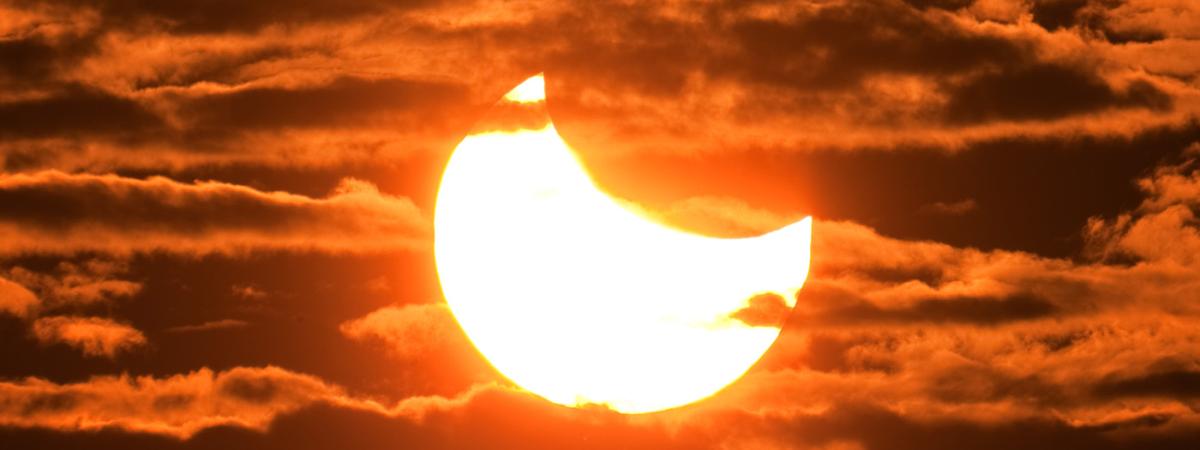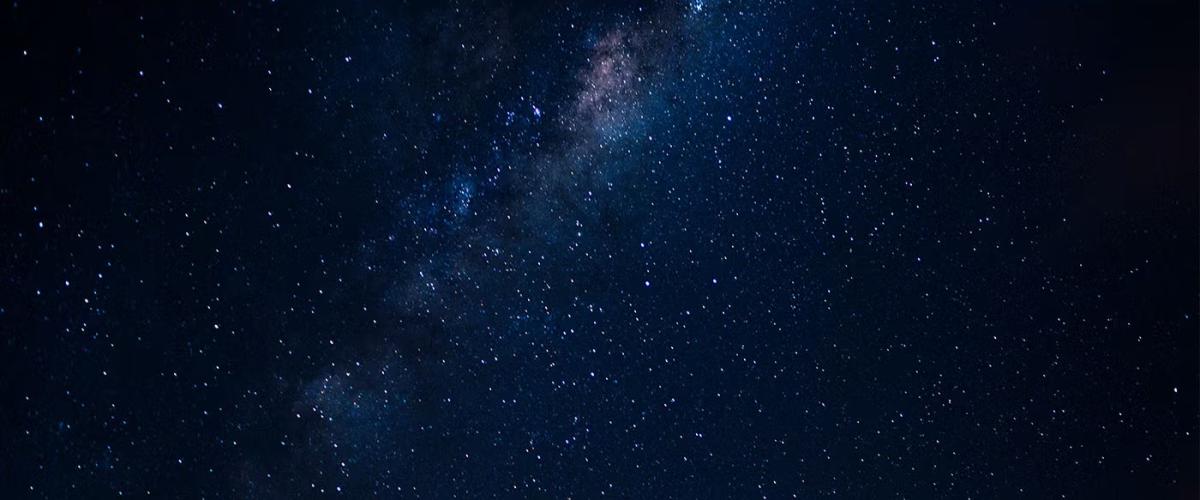Across North America, people will get to witness a rare celestial event today: a solar eclipse, which occurs when the moon passes between the Earth and sun.
 Stacy McGaugh
While certain parts of the United States will experience a total eclipse, Cleveland will only see a partial one, with 80 percent of the sun covered by the moon at maximum eclipse.
It may be tempting to peer up to the sky to watch it, but don’t—at least not without special eclipse glasses to protect your eyes.
The Department of Astronomy will provide protective eyewear at two viewing events it’s hosting today (Aug. 21) at Kelvin Smith Oval and on the roof of A.W. Smith Building, where the department will provide access to the telescope. In both locations, astronomy faculty, staff and students will be there to answer questions. Learn more about the viewing parties.
Can't make it to the parties—and don't have protective eyewear to watch on your own? NASA will live-stream the eclipse at nasa.gov/eclipselive.
So what should everyone should know about solar eclipses in advance of today’s event?
We asked Stacy McGaugh, professor and chair of the department, to share his expertise:
Stacy McGaugh
While certain parts of the United States will experience a total eclipse, Cleveland will only see a partial one, with 80 percent of the sun covered by the moon at maximum eclipse.
It may be tempting to peer up to the sky to watch it, but don’t—at least not without special eclipse glasses to protect your eyes.
The Department of Astronomy will provide protective eyewear at two viewing events it’s hosting today (Aug. 21) at Kelvin Smith Oval and on the roof of A.W. Smith Building, where the department will provide access to the telescope. In both locations, astronomy faculty, staff and students will be there to answer questions. Learn more about the viewing parties.
Can't make it to the parties—and don't have protective eyewear to watch on your own? NASA will live-stream the eclipse at nasa.gov/eclipselive.
So what should everyone should know about solar eclipses in advance of today’s event?
We asked Stacy McGaugh, professor and chair of the department, to share his expertise:
 Stacy McGaugh
While certain parts of the United States will experience a total eclipse, Cleveland will only see a partial one, with 80 percent of the sun covered by the moon at maximum eclipse.
It may be tempting to peer up to the sky to watch it, but don’t—at least not without special eclipse glasses to protect your eyes.
The Department of Astronomy will provide protective eyewear at two viewing events it’s hosting today (Aug. 21) at Kelvin Smith Oval and on the roof of A.W. Smith Building, where the department will provide access to the telescope. In both locations, astronomy faculty, staff and students will be there to answer questions. Learn more about the viewing parties.
Can't make it to the parties—and don't have protective eyewear to watch on your own? NASA will live-stream the eclipse at nasa.gov/eclipselive.
So what should everyone should know about solar eclipses in advance of today’s event?
We asked Stacy McGaugh, professor and chair of the department, to share his expertise:
Stacy McGaugh
While certain parts of the United States will experience a total eclipse, Cleveland will only see a partial one, with 80 percent of the sun covered by the moon at maximum eclipse.
It may be tempting to peer up to the sky to watch it, but don’t—at least not without special eclipse glasses to protect your eyes.
The Department of Astronomy will provide protective eyewear at two viewing events it’s hosting today (Aug. 21) at Kelvin Smith Oval and on the roof of A.W. Smith Building, where the department will provide access to the telescope. In both locations, astronomy faculty, staff and students will be there to answer questions. Learn more about the viewing parties.
Can't make it to the parties—and don't have protective eyewear to watch on your own? NASA will live-stream the eclipse at nasa.gov/eclipselive.
So what should everyone should know about solar eclipses in advance of today’s event?
We asked Stacy McGaugh, professor and chair of the department, to share his expertise:




